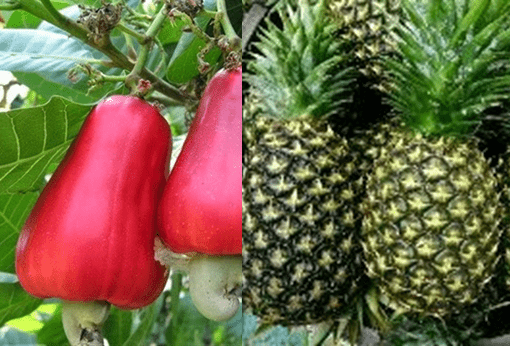Ghana’s non-traditional exports (NTEs) recorded a slight decline in 2024, with total earnings dropping by 2.87% compared to the previous year.
The Ghana Export Promotion Authority (GEPA) announced that earnings for 2024 stood at $3.83 billion, a fall largely attributed to a significant drop in the export of iron and steel products, particularly to the ECOWAS sub-region.
Speaking at the launch of the 2024 Annual NTE Statistics Report, the Chief Executive Officer of GEPA, Francis Kojo Kwarteng Arthur, explained that the decline was not across the board and that many sectors showed commendable growth. “In 2024, Ghana’s NTEs recorded earnings of $3.83 billion, reaching 152 countries, however, we registered encouraging gains in several other sectors,” Mr. Arthur stated.
Despite the overall dip, the manufacturing and semi-processed sectors remained the backbone of Ghana’s non-traditional export earnings. These two sectors jointly accounted for over 83% of total earnings in 2024, reaffirming their critical role in the country’s export economy.
One of the standout performers in this category was cocoa paste, which recorded an impressive 35.54% growth. This was primarily driven by increased demand in Europe and North America. The surge in exports of cocoa paste is a reflection of Ghana’s growing competitive advantage in the value-added cocoa industry, which continues to attract attention for its quality and sustainability.
Agricultural Sector Sees Modest Growth
Ghana’s agricultural sector also posted improved figures in 2024, contributing 13.48% to the overall NTE earnings. This marks a slight but meaningful increase, showcasing the sector’s resilience amid global economic challenges.
The country’s efforts to diversify its export base beyond traditional cash crops like cocoa and into products such as cashew nuts, pineapples, and shea butter appear to be yielding results. These products continue to find growing markets in Europe, Asia, and North America.
A noteworthy highlight in the 2024 NTE statistics is the performance of the Industrial Arts and Crafts sector, which recorded a nearly 23% growth in exports. This signals an increasing global appetite for Ghana’s cultural and creative products, ranging from kente and handmade jewelry to wood carvings and artisanal fabrics.
The growth in this sector reflects successful promotional efforts and a rising appreciation for Ghanaian artistry and craftsmanship on the international market. It also presents a strong case for investing in the creative economy, which has the potential to generate jobs and foster inclusive economic growth.
In response to the findings of the report, Deputy Minister of Trade, Agribusiness and Industry, Samson Ahi, urged stakeholders in the export value chain to pursue aggressive value addition strategies. He emphasized that Ghana’s ability to earn more from exports depends not just on the volume of goods exported, but on the extent to which these goods are processed locally before export.
“Value addition is the surest way to increase our export earnings and create jobs for our people. We must move away from exporting raw materials and focus on producing and exporting finished and semi-finished goods.”
Samson Ahi
Meanwhile, GEPA is planning several interventions to reverse the downward trend and boost the performance of Ghana’s non-traditional exports. Central to these efforts is the Accelerated Export Development Programme (AEDP), which the Authority will continue to support and implement.

The AEDP is designed to build the capacity of exporters, improve product quality standards, expand market access, and support innovation and branding efforts. These interventions are expected to help position Ghanaian products more competitively in international markets and enhance the country’s foreign exchange earnings.
READ ALSO: Rubio To Visit Turkey For Possible Russia-Ukraine Talks




















